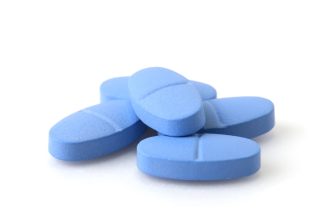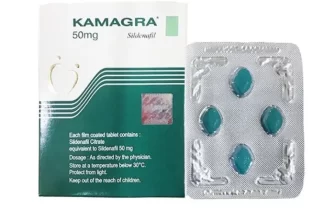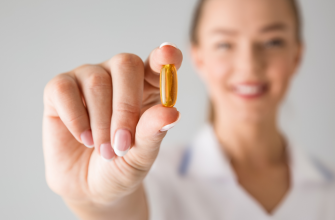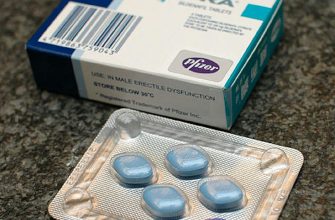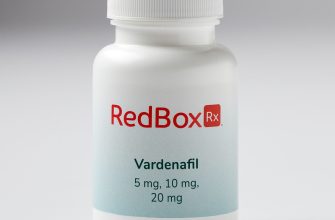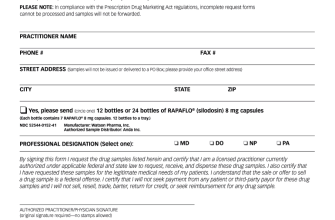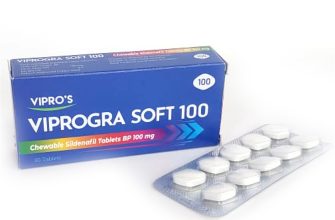The recommended starting dose of generic sildenafil is 50 mg, taken approximately 1 hour before anticipated sexual activity. Depending on individual response and tolerability, the dose may be adjusted to 100 mg or reduced to 25 mg. Do not exceed one dose per 24-hour period.
For many, the 50 mg dose proves effective, enabling improved erectile function without significant side effects. It’s essential to assess personal tolerance and consult a healthcare provider for tailored advice. Factors such as age, overall health, and concurrent medications can influence the optimal dosage.
It’s important to note that sildenafil should be taken on an empty stomach for faster absorption; consuming high-fat meals can delay its effectiveness. Always follow your doctor’s instructions closely to achieve the best results while minimizing potential side effects.
- Generic Sildenafil Dosage: A Comprehensive Guide
- Administration Guidelines
- Adjusting the Dose
- Understanding the Standard Dosage of Generic Sildenafil
- Dosage Guidelines
- Administration Tips
- Factors Influencing Sildenafil Dosage: Age, Weight, and Health Conditions
- Weight Considerations
- Impact of Health Conditions
- How to Adjust Your Sildenafil Dosage: Recommendations and Guidelines
- Common Side Effects of Sildenafil: When to Seek Medical Advice
Generic Sildenafil Dosage: A Comprehensive Guide
The standard dosage of generic sildenafil for most men is 50 mg taken approximately one hour before sexual activity. Depending on individual response and tolerability, this dosage can be adjusted to 25 mg or increased to 100 mg. Start with 50 mg to assess how your body reacts to the medication.
Administration Guidelines
Take sildenafil on an empty stomach for quicker absorption. Avoid heavy meals prior to taking the medication, as fatty foods can delay its efficacy. Swallow the tablet whole with water; do not crush or chew. Maintaining proper timing is crucial, allowing for optimal effectiveness.
Adjusting the Dose
If you find that 50 mg is insufficient or too strong, consult your healthcare provider to determine the best option. Monitor any side effects, such as headaches or flushing, and report these to your doctor for adjustments. Regular follow-ups help to establish the most suitable dosage tailored to your needs.
Understanding the Standard Dosage of Generic Sildenafil
The typical prescribing dosage for generic sildenafil, used to treat erectile dysfunction, ranges from 25 mg to 100 mg. Begin with the lower dose if you are new to the medication and assess its effects before increasing. Your doctor will help tailor the dosage based on your health history and individual response.
Dosage Guidelines
- Starting Dose: 50 mg is common for many patients. It’s taken approximately one hour before sexual activity.
- Adjusting the Dose: Depending on how your body reacts, your doctor might recommend increasing or decreasing the dose in 25 mg increments.
- Maximum Dose: Do not exceed 100 mg per dosage or take sildenafil more than once a day.
Factors influencing dosage include age, overall health, and potential interactions with other medications. Regular medical consultations ensure you receive optimal treatment without adverse effects.
Administration Tips
- Swallow the tablet whole with water. Avoid crushing or splitting unless directed by your doctor.
- Limit heavy meals or alcohol before taking sildenafil. These can affect how the medication works.
- If you miss a dose, skip it if you plan to engage in sexual activity that day; do not double up.
Monitoring your experience with sildenafil is essential. Maintain open communication with your healthcare provider to achieve the best results and adjust the dosage as needed for safety and efficacy.
Factors Influencing Sildenafil Dosage: Age, Weight, and Health Conditions
Dosage of sildenafil varies based on specific factors, including age, weight, and existing health conditions. Individuals over 65 years old may experience slower metabolism and require lower doses, typically starting at 25 mg. Regular monitoring is essential in this age group to prevent adverse effects.
Weight Considerations
Weight plays a significant role in determining the appropriate sildenafil dose. Higher body weight may necessitate a greater dosage due to increased distribution volume. On the contrary, individuals with lower body weight should start with a smaller dose, commonly 25 mg. Consultation with a healthcare provider ensures proper adjustment based on individual health profiles.
Impact of Health Conditions
Multiple health conditions can influence the choice of sildenafil dosage. Patients with cardiovascular issues, kidney, or liver impairments often require dosage modifications. Conditions like diabetes may also affect efficacy and safety. Always discuss medical history with a healthcare professional to determine the best and safest dosage tailored to personal health needs.
How to Adjust Your Sildenafil Dosage: Recommendations and Guidelines
Consult with your healthcare provider before making any changes to your sildenafil dosage. Your doctor can evaluate your specific health needs and recommend the right amount.
Begin with the standard starting dose, commonly 50 mg, taken approximately one hour before sexual activity. If you experience side effects or find the effects insufficient, a dose adjustment might be necessary.
Increase your dosage in increments of 25 mg or decrease it if side effects occur. The usual range is 25 mg to 100 mg, but do not exceed the maximum recommended dosage of 100 mg within a 24-hour period.
Monitor your body’s response after adjusting your dose. Take notes on effectiveness and any side effects. Sharing this information with your healthcare provider will help them tailor your treatment.
Avoid self-adjusting without professional guidance. Factors such as age, other medical conditions, and concurrent medications can influence the appropriate dosage for you. Certain health conditions may necessitate lower doses.
If you’re taking nitrates for heart conditions or other medications that lower blood pressure, inform your doctor. Combining these treatments with sildenafil may lead to unsafe drops in blood pressure.
Stay hydrated and maintain open communication with your healthcare provider throughout your treatment journey. This ensures safe and effective management of your dosage. Regular check-ins can lead to improved outcomes and better satisfaction with your treatment.
Common Side Effects of Sildenafil: When to Seek Medical Advice
Sildenafil may cause side effects that require attention. If you experience headaches, flushing, or nasal congestion, these are typically mild and may resolve on their own. However, seek medical advice if headaches persist or are severe.
Visual disturbances such as blurred vision or changes in color perception can occur. If these symptoms arise, consult a healthcare provider promptly. They will determine if you should continue using the medication.
Another notable side effect is priapism, a prolonged and painful erection lasting more than four hours. This condition requires immediate medical intervention to prevent lasting damage to the penis.
If you notice symptoms like chest pain, irregular heartbeat, or shortness of breath after taking sildenafil, seek emergency assistance. These could indicate serious cardiovascular issues that need urgent evaluation.
Allergic reactions are rare but possible. Swelling of the face, lips, or throat, along with difficulty breathing, demands immediate medical help. Contact emergency services without delay.
Always communicate with your doctor about any side effects experienced while using sildenafil. Timely discussions ensure safe use and appropriate adjustments if necessary.



